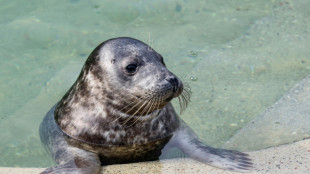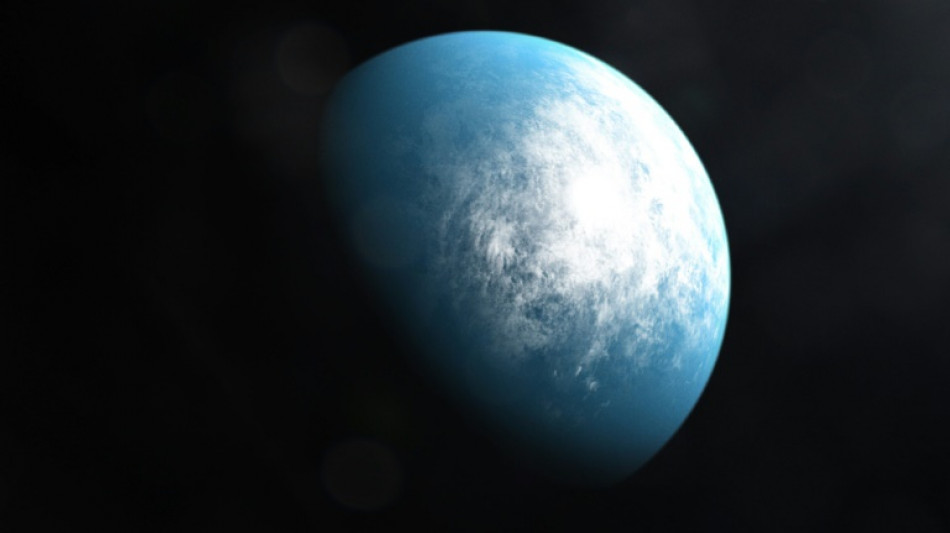
-
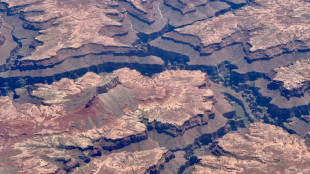 500 tourists evacuated from Grand Canyon wildfires
500 tourists evacuated from Grand Canyon wildfires
-
Italy join Spain in Women's Euro 2025 quarter-finals

-
 Chelsea's Fernandez warns of 'dangerous' heat at Club World Cup
Chelsea's Fernandez warns of 'dangerous' heat at Club World Cup
-
Maresca optimistic for Chelsea against 'best in world' PSG

-
 Trump voices shock at devastating scale of Texas flood damage
Trump voices shock at devastating scale of Texas flood damage
-
Sinner unfazed by French Open collapse as he prepares for Alcaraz rematch

-
 Lyles scorches to comeback win, Alfred conquers 100m
Lyles scorches to comeback win, Alfred conquers 100m
-
'Superman' aims to save flagging film franchise, not just humanity

-
 Forest winger Elanga signs for Newcastle
Forest winger Elanga signs for Newcastle
-
Liverpool to retire Diogo Jota's number 20 shirt

-
 'Still in the game': Lyles outstrips Tebogo in season-opening 200m
'Still in the game': Lyles outstrips Tebogo in season-opening 200m
-
Bumrah proud of 'really special' five-wicket haul at Lord's

-
 Son of Mexico's 'El Chapo' pleads guilty in US drugs case: report
Son of Mexico's 'El Chapo' pleads guilty in US drugs case: report
-
Mob lynches five alleged thieves in quake-hit Guatemalan town

-
 South Korea's Lee carves out narrow halfway lead at Evian
South Korea's Lee carves out narrow halfway lead at Evian
-
Paris glory means nothing to Alcaraz ahead of Sinner rematch in Wimbledon final

-
 Lightweight boxing champion Davis arrested: reports
Lightweight boxing champion Davis arrested: reports
-
US appeals court scraps 9/11 mastermind's plea deal

-
 Djokovic admits age catching up with him after Wimbledon defeat
Djokovic admits age catching up with him after Wimbledon defeat
-
Alcaraz, Sinner will resume rivalry in Wimbledon final

-
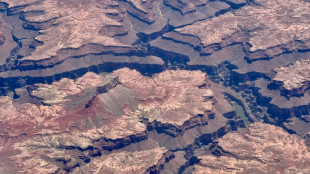 Part of Grand Canyon evacuated as wildfire spreads
Part of Grand Canyon evacuated as wildfire spreads
-
Venus Williams, 45, accepts wildcard for WTA DC Open

-
 Trump in Texas to survey flood damage as scrutiny of response mounts
Trump in Texas to survey flood damage as scrutiny of response mounts
-
Sinner mauls Djokovic to reach first Wimbledon final

-
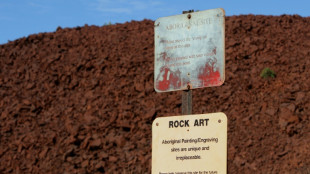 Australia's Aboriginals win bid for UNESCO listing of ancient site
Australia's Aboriginals win bid for UNESCO listing of ancient site
-
Archer strikes on Test return before India's Gill falls cheaply

-
 Latest Grok chatbot turns to Musk for some answers
Latest Grok chatbot turns to Musk for some answers
-
Moscow sizzles in record-breaking heatwave

-
 PKK militants want to enter Turkish politics: top commander
PKK militants want to enter Turkish politics: top commander
-
MSF warns acute malnutrition soaring in Gaza

-
 France probes X over claims algorithm enabled 'foreign interference'
France probes X over claims algorithm enabled 'foreign interference'
-
Wimbledon withdrawal 'most painful moment' for Dimitrov

-
 Three Cambodia genocide sites added to UNESCO register
Three Cambodia genocide sites added to UNESCO register
-
Alcaraz reaches third successive Wimbledon final, Djokovic faces Sinner

-
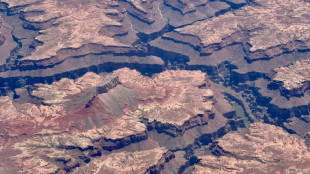 Wildfire forces evacuation of part of Grand Canyon
Wildfire forces evacuation of part of Grand Canyon
-
Crystal Palace demoted to UEFA Conference League for multi-club breach

-
 Trump's tariff threats and delays: state of play
Trump's tariff threats and delays: state of play
-
Alcaraz subdues Fritz to reach third successive Wimbledon final

-
 She's Electric: Manchester wired as 'Oasis Day' dawns
She's Electric: Manchester wired as 'Oasis Day' dawns
-
Pogacar pounces to retake Tour de France lead

-
 Pogacar pounces to retakes Tour de France lead
Pogacar pounces to retakes Tour de France lead
-
Archer strikes with third ball on Test return against India

-
 Spurs sign Kudus but Gibbs-White move stalls
Spurs sign Kudus but Gibbs-White move stalls
-
Trump flies to flood-ravaged Texas as scrutiny of response mounts

-
 IEA sees anaemic global oil demand growth amid tariff turmoil
IEA sees anaemic global oil demand growth amid tariff turmoil
-
India's Chopra wants coach Zelezny's big-stage mindset

-
 Trump threatens Canada with higher tariff, mulls further global levies
Trump threatens Canada with higher tariff, mulls further global levies
-
Five-star Bumrah strikes for India as England post 387

-
 Minister's death spooks Russian elite amid corruption clampdown
Minister's death spooks Russian elite amid corruption clampdown
-
UNESCO adds Cameroon, Malawi sites to heritage list
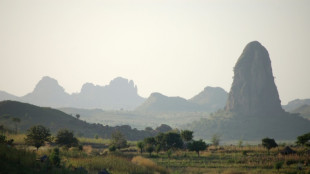

Nearby exoplanet could be first known ocean world: Webb telescope
A planet relatively close to Earth could be the first ever detected with a potentially life-sustaining liquid ocean outside our Solar System, according to scientists using the James Webb space telescope.
More than 5,000 planets have been discovered outside of the Solar System so far, but only a handful are in what is called the "Goldilocks zone" -- neither too hot or too cold -- that could host liquid water, a key ingredient for life.
The exoplanet LHS 1140 b is one of the few in this habitable zone, and has been thoroughly scrutinised since it was first discovered in 2017.
It sits 48 light years from Earth, which equates to more than 450 trillion kilometres (280 trillion miles) -- relatively close in the vast distances of space.
The exoplanet had been thought to be a small gas giant called a "mini-Neptune" with an atmosphere too thick with hydrogen and helium to support alien life.
However, new observations from the Webb telescope have confirmed that the exoplanet is in fact a rocky "super-Earth".
It is 1.7 times bigger than Earth, but has 5.6 times its mass, according to a study published late Wednesday in The Astrophysical Journal Letters.
- 'Best bet' for ocean world -
The Webb telescope was able to analyse the planet's atmosphere as it passed in front of its star.
There were no signs of hydrogen or helium, which ruled out that the planet was a mini-Neptune.
The density of the planet indicates that it "actually has large quantities of water," study co-author Martin Turbet of France's CNRS scientific research centre told AFP.
It could be a truly immense amount of water.
All the water in Earth's oceans represent only 0.02 percent of its mass. But 10 to 20 percent of the exoplanet's mass was estimated to be water.
Whether or not this water is in liquid or ice form depends on the planet's atmosphere.
"We do not have direct evidence that it has an atmosphere, but several elements point in that direction," Turbet said.
Lead study author Charles Cadieux, a PhD student at the University of Montreal, said that "of all currently known temperate exoplanets, LHS 1140 b could well be our best bet to one day indirectly confirm liquid water on the surface of an alien world".
One positive is that the planet is gently warmed by its red dwarf star, which is one-fifth the size of the Sun.
The exoplanet's surface temperature should be fairly similar to that on Earth and Mars, Turbet said.
The presence of gasses such as carbon dioxide will play a key role in determining whether the planet is covered in ice or water.
- Bull's-eye ocean -
One possibility is that the surface is mostly ice, but there is a vast liquid ocean where the planet is most exposed to its star's heat.
This ocean could measure about 4,000 kilometres in diameter, around half the surface area of the Atlantic Ocean, modelling suggested.
Or the liquid water could be hidden under a thick shell of ice, like on the moons Ganymede, Enceladus or Europa orbiting around Jupiter and Saturn.
Webb's instrument spotted signs that suggest "the presence of nitrogen," Cadieux said, adding that more research was needed to confirm the finding.
Nitrogen is found everywhere on Earth, and is thought to be another potentially ingredient for life.
The researchers are hoping to get a few more hours of the Webb's telescope's precious time to find out more about LHS 1140 b.
It will take at least a year to confirm whether the exoplanet has an atmosphere, and two or three more to detect the presence of carbon dioxide, the researchers estimated.
F.Bennett--AMWN
